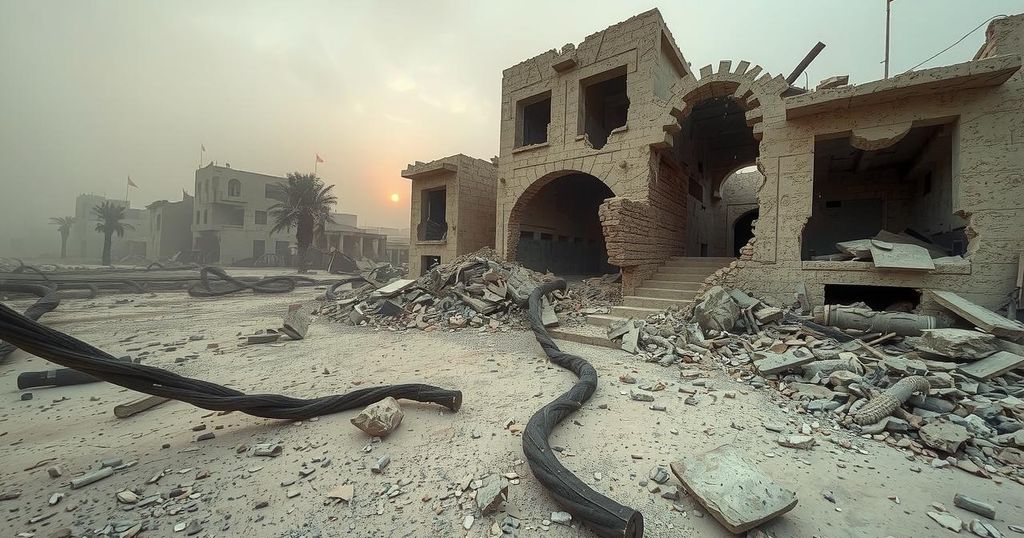The civil war in Syria intensifies with a notable offensive by rebel forces in Aleppo, marking the first major attack on the city since 2016. The conflict raises concerns about instability in the region as the balance of power shifts, involving international actors such as Russia and Turkey. The situation could significantly alter the dynamics of the ongoing war and impact broader geopolitical relations.
The prolonged civil war in Syria has escalated due to a surprising offensive by rebel forces in Aleppo, a historically significant city in Syria. This offensive marks one of the most significant attempts by opposition forces in recent years and highlights the ongoing instability affecting not only Syria but also the broader Middle Eastern region.
This offensive is notable as it represents the first major rebel attack on Aleppo since 2016, which saw Syrian President Bashar Assad regain control of the city following a devastating air campaign by Russian forces. Outside support from Russia, Iran, and Hezbollah has played a crucial role in sustaining Assad’s regime, which currently controls about 70% of Syria.
The renewed violence in Aleppo raises concerns of another potential front opening in the region, particularly while U.S.-backed Israel is already engaged with Hamas in Gaza and Hezbollah in Lebanon, both of whom are aligned with Iran. Former U.S. Ambassador Robert Ford observed that the ongoing Israeli military actions against Syrian and Hezbollah targets have provided an unexpected opportunity for rebel forces to advance their positions in Aleppo.
The significance of the conflict in Aleppo is profound, as it has been a focal point of the war for 13 years and has resulted in the loss of approximately half a million lives. Approximately 6.8 million Syrians have sought refuge outside the country, influencing political dynamics in Europe. The remaining areas of Syria not under Assad’s control are occupied by various opposition forces and foreign military personnel, including approximately 900 U.S. troops deployed to combat the Islamic State.
This resurgence in fighting is perceived to have potentially transformative implications for the balance of power in Syria. As noted by Charles Lister from the Middle East Institute, if government forces are unable to maintain control, it may lead to significant changes in territorial control. Additionally, there is a risk that this climate could provide openings for Islamic State forces to exploit. Ford expressed concerns that escalating hostilities could provoke direct confrontations between Russian and Turkish interests in the region.
The group spearheading the offensive in Aleppo, Hayat Tahrir al-Sham (HTS), has been classified as a terrorist organization by both the U.S. and the U.N. Initially led by Abu Mohammed al-Golani, who aligned closely with al-Qaida, HTS has sought to rebrand itself in recent years. Golani has distanced the group from extremist behavior, allowing minor religious freedoms and positioning himself as a protector of minority communities.
Aleppo, located along essential trade routes, was historically a bustling hub, with a population of 2.3 million prior to the start of the war. The city fell under opposition control in 2012, symbolizing the rebels’ significant gains. However, in 2016, Assad’s forces and their allies reduced the city to ruins through intense bombardment, culminating in its surrender, which decisively shifted the momentum of the conflict.
The recent offensive by rebel forces in Aleppo underscores the persistent instability in Syria, a nation grappling with the ramifications of a decade-long civil war. The resurgence of conflict could potentially realign power dynamics within Syria and the greater Middle East, especially given the influence of external powers like Russia and Turkey. As territorial control remains tenuous, the international community must closely monitor the escalating situation, recognizing its potential impact on regional and global security.
Original Source: apnews.com




